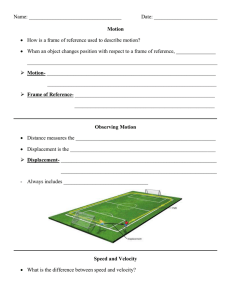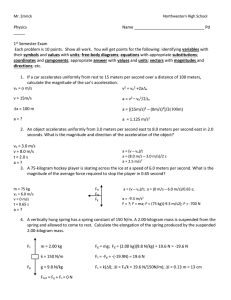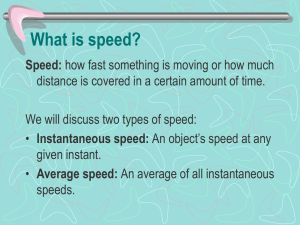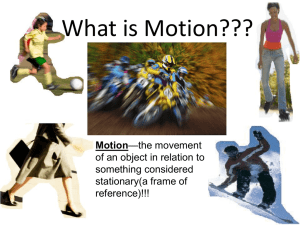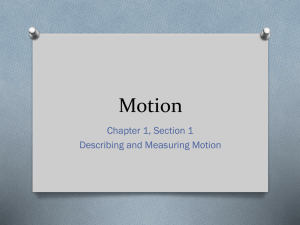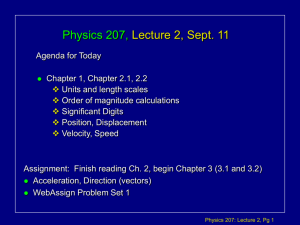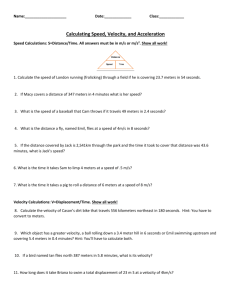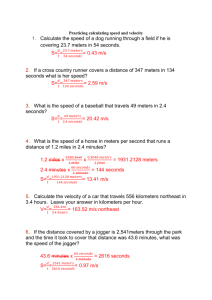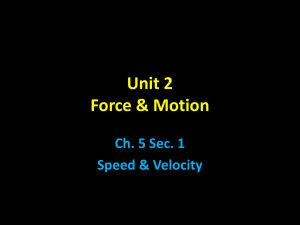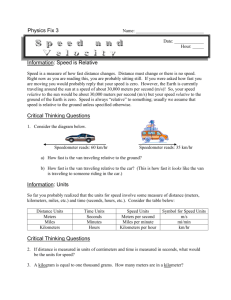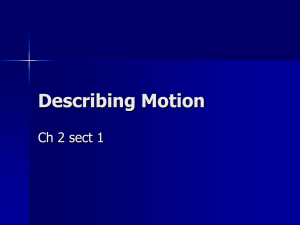Motion, Speed, and Velocity Physics Presentation
advertisement
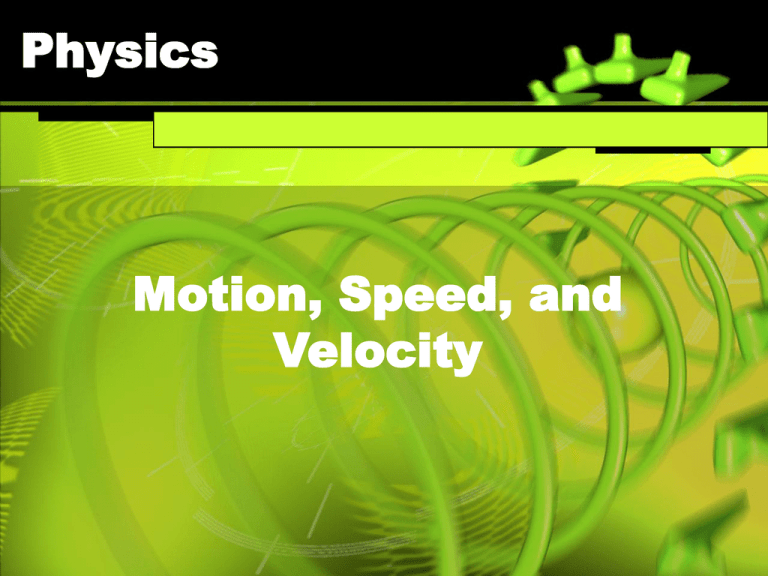
Physics Motion, Speed, and Velocity SC Standards Covered PS-5.1 Explain the relationship among distance, time, direction, and the velocity of an object PS – 5.2 Use the formula v=d/t to solve problems related to average speed or velocity PS – 5.6 Represent linear motion of objects on distance – time graphs Motion • When an object changes its position, motion has occurred. – Distance- How far an object has moved. – Displacement- How far an object has moved in relation to its starting point. – Consider direction Example: Two runners travel along the same straight path in a straight line for 500 meters. At the end of the run their distances are the same but their displacements are different. How can this be so? Speed- Distance an object travels per unit of time Relationships between speed, distance, and time: Speed = Distance/ Time = d/ t » Constant Speed- speed does not change over time » Average Speed- speed of motion when speed is changing Avg Speed = Total Distance/ Total Time » Instantaneous Speed- speed at any given moment in time (speedometer) Graphing Motion • Graph distance on the yaxis and time on the x-axis Slope = rise = distance = speed run time Distance - Time Graph • If something is not moving, a horizontal line is drawn. • If something starts out slow and then speeds up, its change in speed can look like this. Learning Checkpoint This graph shows several stages of motion: •Stage 1: 100 m in 10 s •Stage 2: 50 m in 10 s •Stage 3: 150 m in 20 s Calculate the speed as indicated by each of the colors. Calculate the average speed. What is the total distance? What is the displacement? Solution Stage 1: S= d/ t 100 m/ 10 s= 10 m/s Stage 2: S= d/t 50 m/ 10 s= 5 m/s Stage 3: S= d/t 150 m/ 20 s= 7.5 m/s Ave Speed= Tot d/ Tot t 300 m/ 40 s= 7.5 m/s Distance = 300 meters Displacement = 0 meters Velocity • The speed and direction of an object’s motion. – 88 km / hr southwest
